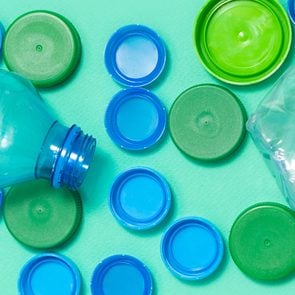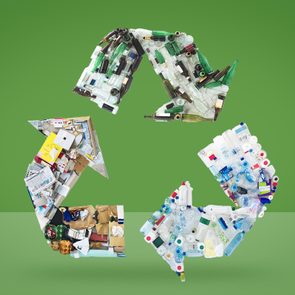31 Sustainable Fashion Brands You Can Support Right Now
Updated: Feb. 01, 2024
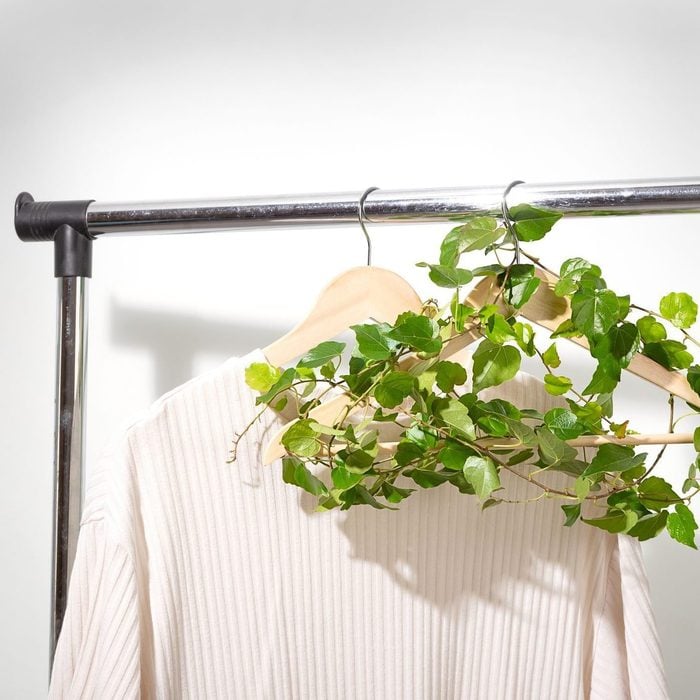
Not only do these brands help you look stylish, they also do what they can to help the planet
Our editors and experts handpick every product we feature. We may earn a commission from your purchases.
These days, there are lots of ways to make sustainable living part of your everyday life. One of the easiest? Using your purchasing power to support sustainable clothing brands that prioritize ethics and use earth-friendly manufacturing processes. When you spend your dollars on eco-friendly brands, you tell everyone around you what you care about and create the foundation for the world you want to live in.
Sending a message matters, and making a tangible difference matters even more. After all, each of us has a responsibility to fight against climate change and reduce our carbon footprint, and a huge part of that comes from changing our consumption habits.
To make your sustainability journey easier, we’ve rounded up the best sustainable clothing brands. Before you get started, know that no fashion brand is 100% eco-friendly. Still, there are plenty of brands working hard to mitigate the effects of manufacturing on our earth. And don’t feel like you have to buy new things to go green. If you can’t purchase new from one of these sustainable clothing brands, you can learn how to upcycle clothes in creative ways or look for brands providing sustainable product shipping and packaging. When you’re ready to trade the pieces in, find out where to sell clothes online.
What is fast fashion?
Fast fashion is cheaply made clothing that is usually very trendy. (See also: Shein.) It’s meant to have a short lifespan in your closet before it gets tossed. When you factor in what it took to make that item and then the waste of it being thrown out so quickly, you start to understand how it really takes a toll on the planet.
For starters, fast fashion brands often use synthetic fabrics derived from fossil fuels like oil and gas. Why does that matter to the climate? Well, the burning of fossil fuels is a major source of greenhouse gas emissions.
“Synthetics cost less than natural fibers,” explains Anika Kozlowski, PhD, assistant professor of fashion, design and sustainability at Ryerson University. “Brands that use synthetic fibers like polyester, nylon and acrylic are ultimately creating products that will take hundreds of years to biodegrade.”
This kind of pollution, especially at its current scale, is incredibly dangerous.
And you might be unknowingly supporting it. Some so-called sustainable clothing brands are fast fashion in disguise, tricking you with greenwashing. In other words, fast-fashion companies create the illusion that they’re green when it comes to their supply chain and products’ lifecycles, but in reality, they’re not providing any transparency to back up their claims. That’s why it’s important to fully understand what fast fashion is and to closely read clothing labels and brand websites.
What makes a clothing brand sustainable?
Sustainable clothing is produced in a way that’s friendly to the environment. But as you now know, fast fashion can market itself as environmentally virtuous when it’s actually harmful to the planet. So, what is sustainable fashion from a production standpoint?
To spot a truly sustainable brand, you’ll need to pay attention to a company’s manufacturing practices and approach to fashion.
Creating timeless, long-lasting clothing meant to be worn again and again is one way a brand can approach sustainability. Another way the best sustainable clothing brands are working to reduce their harmful impact is by banning, or at least limiting, hazardous chemicals from the manufacturing process. Certain dyes and finishes (like the ones used to make wrinkle-resistant fabric) are safe for the person wearing the clothing, but they can harm the people who create the garment and even those who live in the area where the clothing is produced—those chemicals can get into community water sources.
The type of textiles a manufacturer uses also matters. “Try to buy items made of organic fabric when you can,” says Kozlowski. Things like cotton are often grown using pesticides, which are harmful to workers and wildlife. That’s why some brands are switching to organic cotton and linen when making sustainable clothing.
As you shop for sustainable fashion, look for the following certifications, which create an industry baseline to help consumers make the most informed decisions.
-
B Corp: Considered the gold standard for any for-profit entity measuring its social and environmental performance, this certification requires a company to pay a significant fee, meet legal requirements and remain publicly transparent via an annual report for consumers and shareholders.
-
Climate Neutral: This accessible certification helps brands measure, offset and reduce their carbon emissions, thus reducing climate change.
-
Global Organic Textile Standard (GOTS): This is the standard for organic textile and natural fiber production from beginning to end. Brands must have at least 95% natural organic fibers, are banned from certain toxic ingredients and must ensure social responsibility and fair labor conditions.
-
Fairtrade International: Promoting fair wages and working conditions for all kinds of industries, this global nonprofit requires its brands to either meet Fairtrade standards themselves or source from Fairtrade-certified supply chains.
Are there sustainable fabrics?
The short answer: Yes. The best sustainable fashion brands have found quite a few cool ways to incorporate eco-friendliness into the textiles they use. The most sustainable fabrics include:
- Organic cotton
- Bamboo
- Linen
- Hemp
- Lyocell
- Modal
- Recycled polyester
On the other hand, the least sustainable fabrics are:
- Polyester
- Nylon
- Acrylic
- Cotton
Where is sustainable fashion made?
While sustainable fashion doesn’t have to be made in any one place, it’s reasonable to draw the connection between sustainability and places with fair labor regulations, such as the United States. Plus, if you live in the United States, purchasing products made here cuts down significantly on transportation and, as such, carbon emissions.
30 most sustainable fashion brands
Now that you have a better understanding of what makes a company eco-friendly (or not), it’s time to browse dozens of top sustainable clothing brands. The fun begins when you start shopping.
How we built this list
When creating this list of the best sustainable clothing brands, we considered a whole bunch of factors, including a company’s environmental certifications and climate-conscious manufacturing processes. We pored over hundreds of user reviews and star ratings, and studied in-depth expert recommendations that holistically analyzed the brands’ eco-friendliness.
Best shoe selection
Alohas
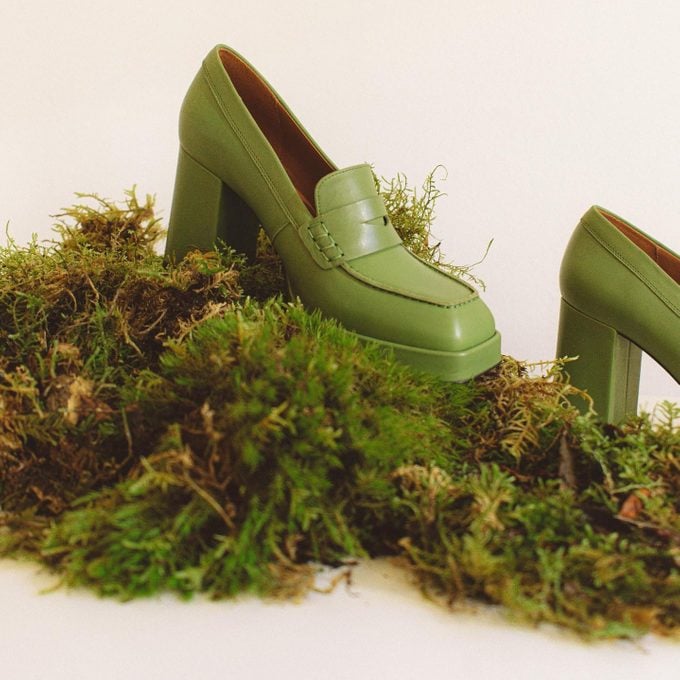
Fashion-forward brand Alohas offers a wide variety of timeless yet trendy clothing pieces, but among its best are its shoes. From sturdy vegan leather boots to strappy sandals, the Spain-based brand is a destination for footwear.
It was founded on an on-demand production model, meaning it launches products in pre-order phases so it can calculate exactly how many units it needs to produce, reducing wasteful overproduction. And in working with local artisans in Alicante, Spain, Alohas is supporting the local community, promoting healthy working conditions and lowering its carbon footprint.
Pros:
- Large selection of high-quality, on-trend shoes
- Also sells clothing, jewelry and handbags
- Many vegan products
- On-demand production model cuts down on waste
- Works with artisans certified by the Leather Working Group to improve the environmental impact of leather
Cons:
- Phased production model can be confusing
Best classic style
Everlane
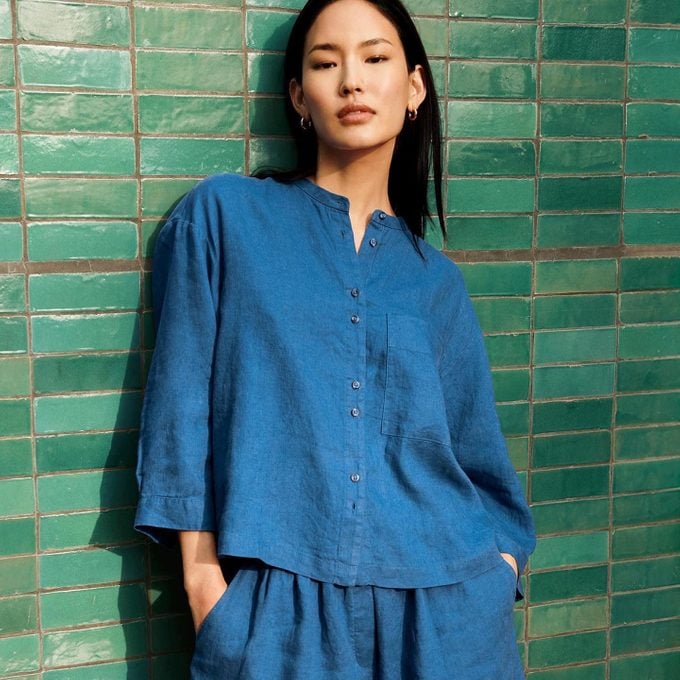
One of the most well-known sustainable clothing brands, Everlane is focused on creating simple pieces for men and women that will last a long time. You won’t find super-trendy pieces here, and that’s a good thing. The company partners with ethical factories all over the world; each undergoes a compliance audit in which Everlane ensures the factory offers fair wages, has reasonable working hours and more. It’s already gotten rid of most plastic in its supply chain, and it’s working toward a model that eliminates plastic entirely. Also cool: Everlane is transparent about the true cost of producing each garment, so you’ll find all information on exactly how much the company spent to make those jean you’re eyeing.
Pros:
- Timeless designs will last years
- Prioritizes working with ethical factories
- Uses sustainable fabrics, including GOTS-certified organic cotton
- Eliminated 90% of plastics from its supply chain and is working to get rid of the last 10%
Cons:
- No ability to call customer service
- International customers have to pay to ship returns
Best for outdoor adventurers
Patagonia

This outdoor-wear brand is recognized as one of the most ethical companies around, and for good reason. For years, Patagonia‘s famous self-imposed 1% “tax” has been donated to earth-friendly organizations. In September 2022, Patagonia founder Yvon Chouinard made headlines when he took the unprecedented step of transferring ownership of the $3 billion company to a trust meant to protect the company’s eco-friendly values and to a nonprofit dedicated to fighting climate change. In a letter posted on the company’s website, Chouinard wrote, “Earth is now our only shareholder.” The brand will continue to use sustainable materials whenever possible and will help you repair items to make them last longer, using less energy and wasting less water as a result. Patagonia also buys and resells its own styles, so you can either get credit for turning in old items or purchase pre-owned items to give them an even longer life.
Pros:
- Wide variety of clothing for outdoor play
- Dedicated to the environment through philanthropy and sustainability
- Produces high-quality, resilient products designed to last
- Uses sustainable fabrics, including organic cotton and recycled wool
Con:
-
Clothes are casual, so not the place to shop for a work wardrobe or dressy clothes
Best activewear for young adults
Timberland
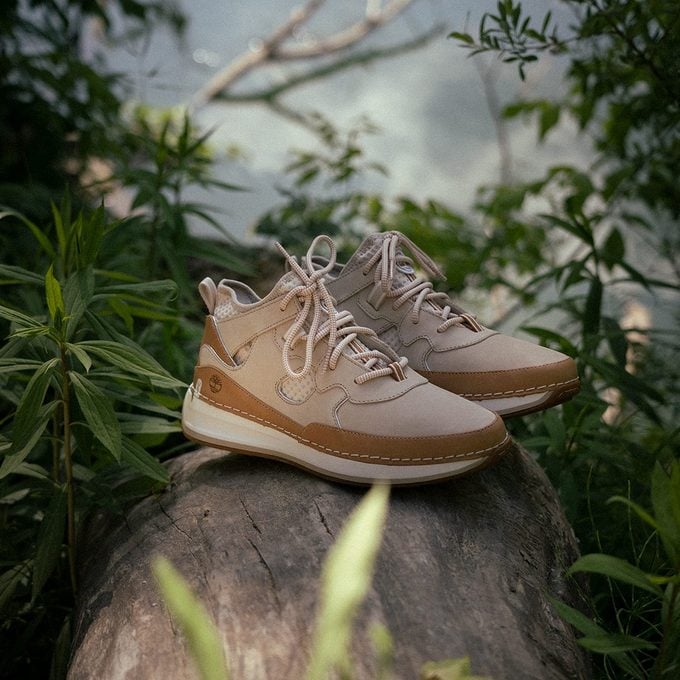
Timberland doesn’t just want to make products that limit harmful effects on the environment. It wants to make a positive impact too. The company has already planted tens of millions of trees, and by 2025, its mission is to up that number to 50 million. The brand also uses materials made out of recycled plastic and only works with leather tanneries that have silver- or gold-star ratings.
Pros:
- Distinct style appeals to the younger generation
- Iconic brand known for durability
- Uses profits, paid time for employees to volunteer and sustainable materials to support the environment
- Keeps goods out of landfills by accepting used products and refurbishing or selling them
Con:
-
Gen Z–centric marketing may discourage other demographics
Best women-run brand
Able
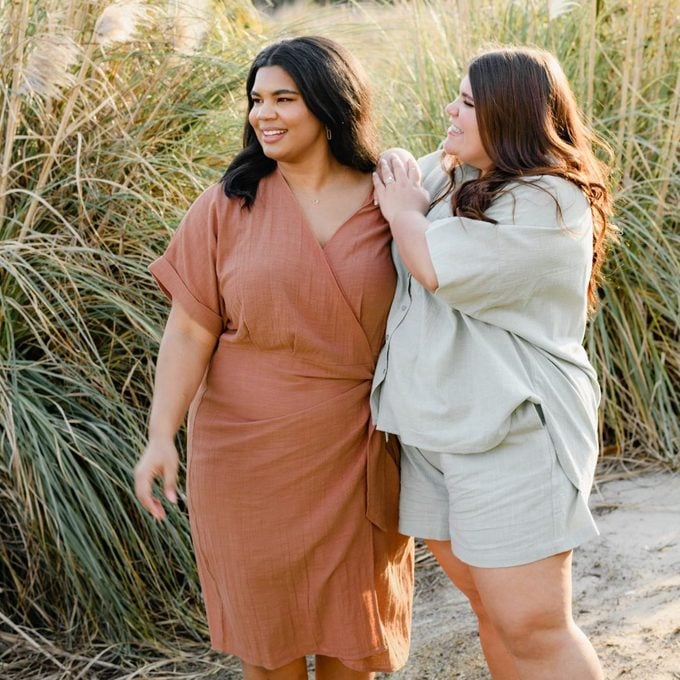
With a focus on fighting poverty by creating jobs for women and offering fair wages, Able produces clothing, bags and shoes that are trendy yet timeless. It uses durable, natural materials and evaluates all its manufacturing partners on safety, quality and fair wages to ensure the company fully understands the impact of its supply chain. To hold itself accountable, Able also publishes the wages it pays right on its website.
Pros:
- Women-led company
- Uses natural materials and ethical manufacturing
- Creates jobs with fair, transparent wages for women in poverty
- Inclusive sizing
Con:
-
A small number of the natural and synthetic materials that Able uses are considered unsustainable
Best trend-forward brand
Reformation

This Los Angeles–based brand began in 2009 by selling vintage clothing and eventually expanded into making its own pieces out of sustainable and upcycled materials. Reformation is 100% carbon neutral and recycles 75% of its waste. It believes it’s not enough to manufacture sustainably, so it invests in charitable programs (such as Native Energy) to replace some of the resources it uses.
Pros:
- Designs on-trend, stylish pieces
- Supports sustainability through manufacturing and philanthropy
- Dedicated section for vintage clothing
Con:
-
Pricey for “wear-now” styles
Best women’s activewear
Girlfriend Collective
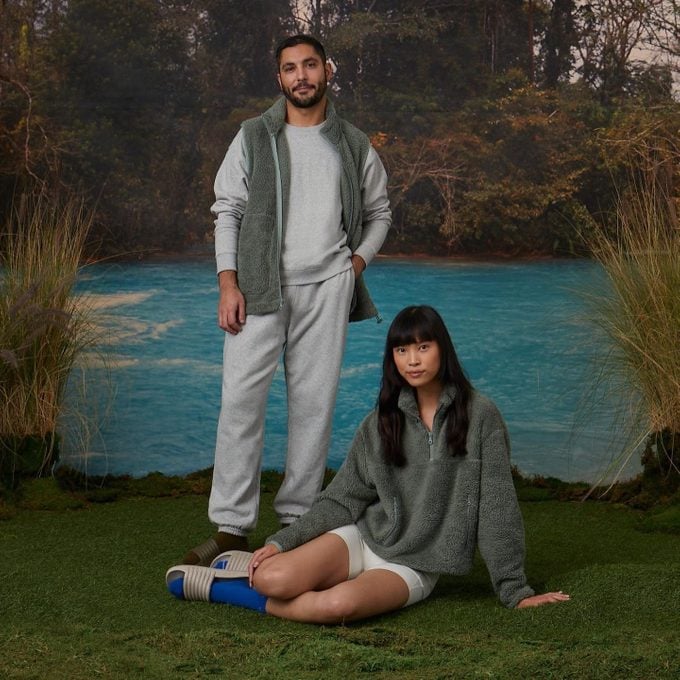
Known as one of the most sustainable activewear brands, Girlfriend Collective sells leggings, bras and tops made from things like recycled fishing nets and water bottles. The packaging—from the tags to the shipping envelopes—is also 100% recyclable. Girlfriend Collective uses eco-friendly dyes, and its factory has the highest ethical certification available. Bonus: Send back your old Girlfriend Collective items and get a $15 credit.
Pros:
- Caters to women with active lifestyles
- All materials, from products to packaging, are eco-friendly
- Inclusive sizing, from XXS to 6XL
- Small men’s assortment also available
Con:
-
No information about energy use or greenhouse gas emissions
Best for men and women on the go
Prana

With the tagline “clothing for positive change,” this outdoor and activewear brand incorporates a number of eco-friendly practices into its business. Prana’s clothing is made from textiles like organic cotton and recycled wool. It also incorporates Bluesign technology to keep the air and ocean free from harmful chemicals and uses fair-trade-certified practices. And your order will arrive in sustainable packaging, which helps reduce waste.
Pros:
- Durably and thoughtfully designed for everything from working out to traveling
- Prioritizes animal welfare, garment recycling, the reduction of manufacturing emissions and sustainable materials
- Fair trade certified
Con:
-
Some shoppers says colors can fade
Best denim for all sizes
1822 Denim
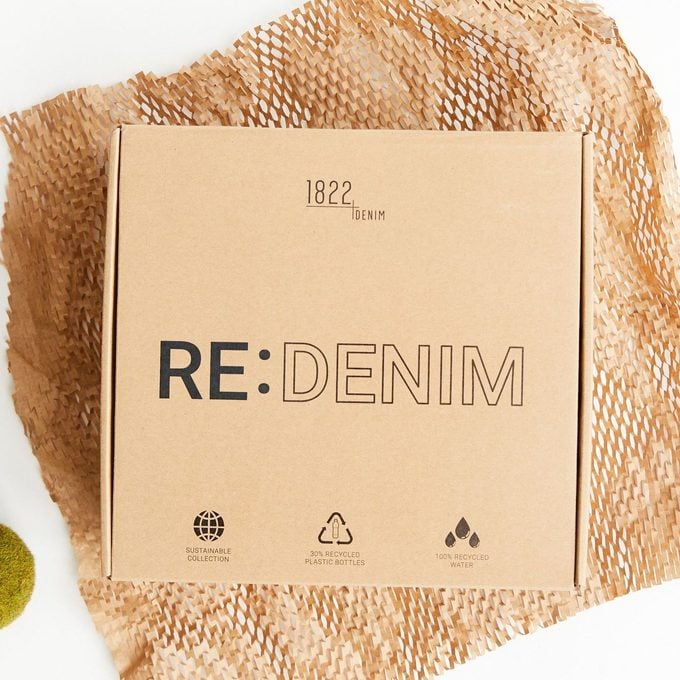
Not only is 1822 Denim size inclusive, it’s also committed to sustainability. Its RE:Denim collection is created from 30% recycled water bottles and 100% recycled water. The result: cute styles that don’t negatively affect the earth.
Pros:
- Inclusive sizing, from 00 to 18
- Sustainable jeans made from recycled water bottles and using recycled water
- Well-priced
Con:
-
All denim is merchandised together, so figuring out which is sustainable could be confusing
Best department store brand
Zella
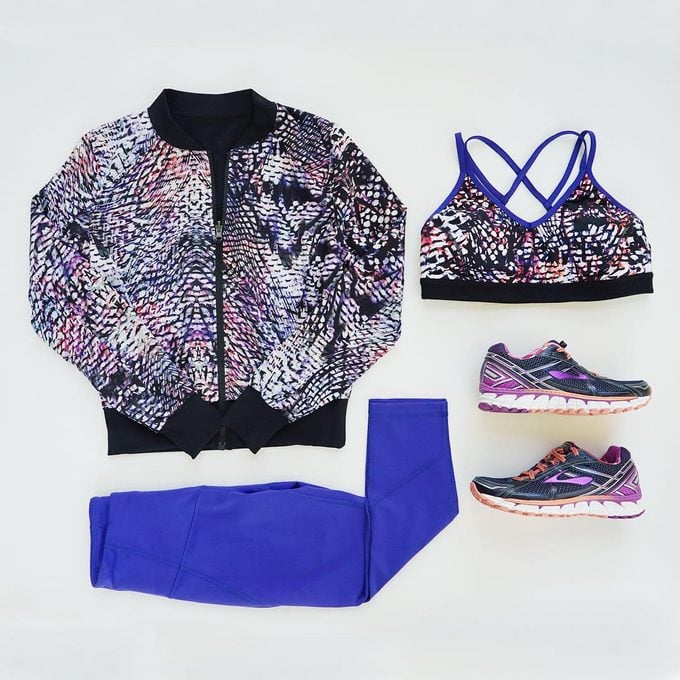
Zella is an activewear brand exclusive to Nordstrom. From joggers that are great for running errands to leggings that will move and stretch with you during yoga, each piece is designed for both comfort and functionality. Even better, all the pieces are made using eco-conscious textiles, like recycled polyester. Once you place your order, read up on clothes recycling so you can avoid sending these eco-friendly threads to the landfill.
Pros:
- Conveniently sold at Nordstrom
- Every style is made with eco-friendly materials
- Inclusive sizing, from XXS to XXL, plus petite and maternity
- Available for men, women, boys and girls
Con:
-
Smaller assortment than comparable brands
Best budget-friendly activewear
All in Motion
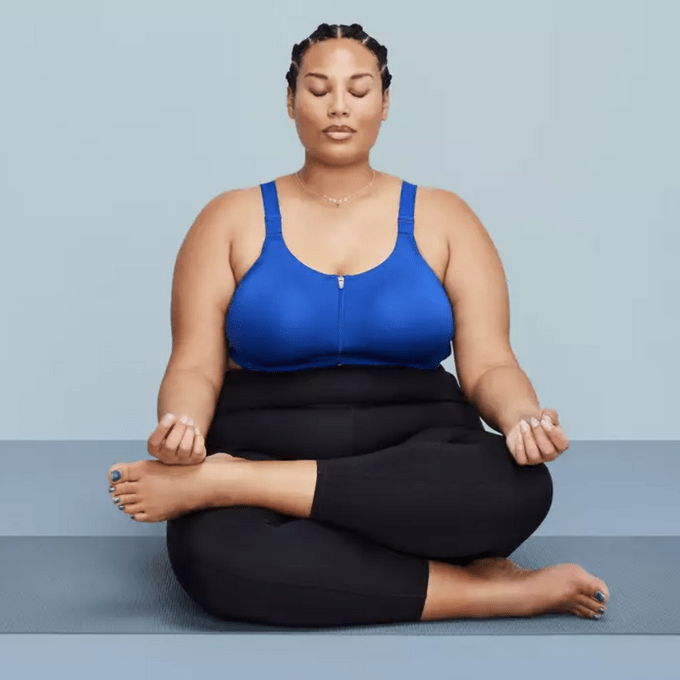
Target has long been a go-to for affordable fashion, and now it offers a sustainable collection too. All in Motion is activewear for men, women and kids, and it offers all the functionality you want in workout gear—think moisture-wicking and good stretch. A good portion of the collection is made using recycled polyester.
Pros:
- Affordably priced
- Manufactured with a majority of sustainably sourced materials
- Surveyed more than 15,000 people about fit, fashion and function to perfect designs
Con:
-
Some pieces are inconsistently sized
Best approachable designer brand
Eileen Fisher
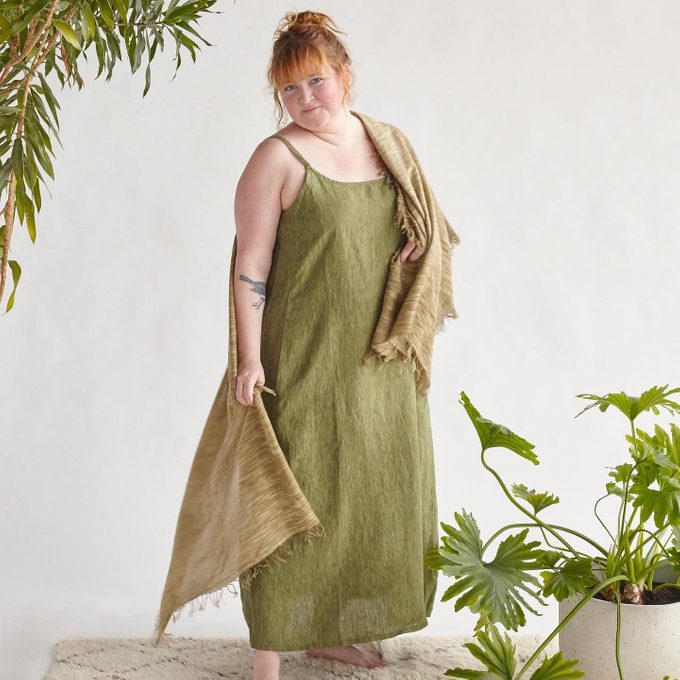
Find a little luxury that’s also good for the earth at Eileen Fisher, a high-end brand that’s considered an industry leader when it comes to sustainability for its full lifecycle approach. Translation: It has a sustainable view on everything from the textiles and dyes it uses to the production process and how much waste it creates. It also buys back gently used pieces and resells them on its Renew site.
Pros:
- Designer brand with timeless, versatile pieces
- Incorporates sustainability into every part of the brand
- Resale site gives used clothing a second life
Con:
-
Designer price point
Best on-trend denim
Liverpool
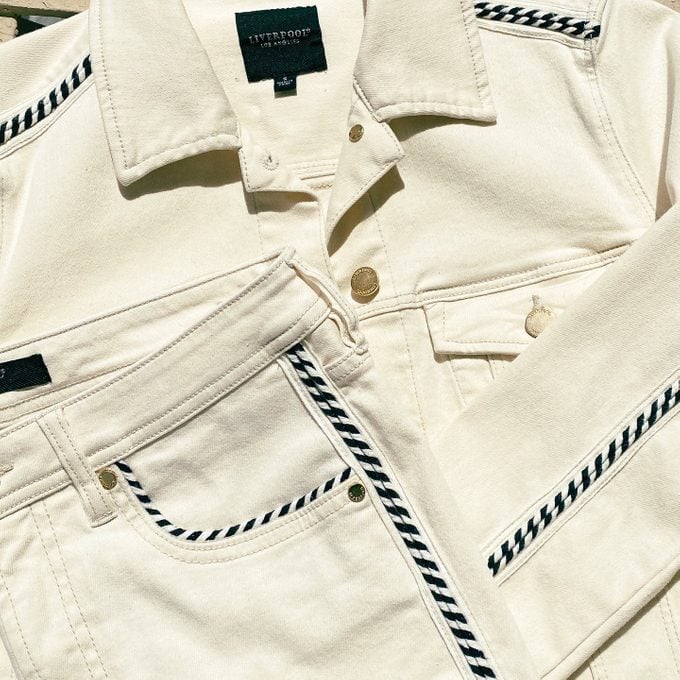
The jeans in Liverpool’s Eco Denim line are designed using new laser techniques and processes that use a fraction of the earth’s natural resources compared with other jeans. In fact, all Liverpool’s sustainable denim has an EIM (Environmental Impact Measurement) score under 33, verifying its low impact on the planet. And each item in the eco-conscious line comes with its own EIM score, so you can buy the jeans with the lowest environmental impact.
Pros:
- Variety of fashion-forward denim styles and washes
- Uses laser techniques and processes to minimize environmental impact
- The Eco Collection costs the same as Liverpool’s other jeans
- Eco-conscious denim for women, men and plus sizes
Con:
-
The rest of Liverpool’s clothes aren’t specifically eco-friendly
Best clothing rentals
Rent the Runway
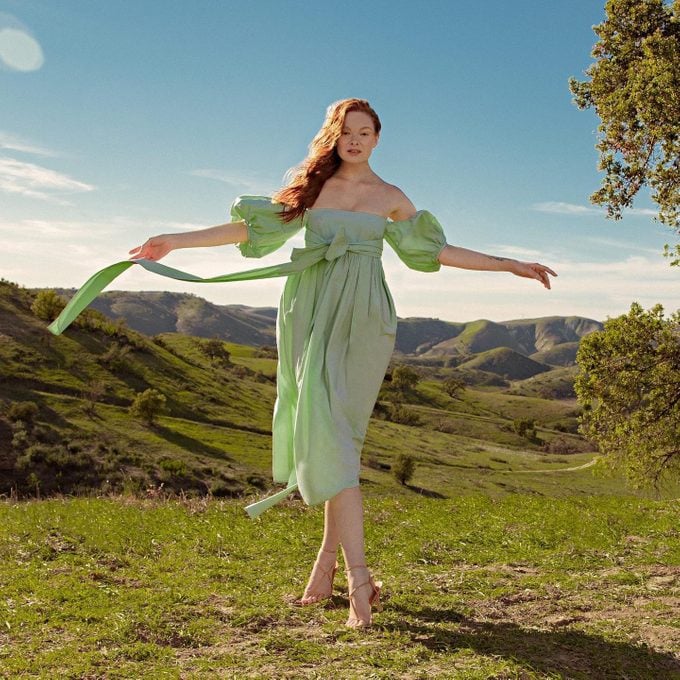
If you haven’t heard of this popular service, it’s about time you learned. Rent the Runway allows you to rent pieces of clothing for a small fee. The service saves you money because you don’t have to pay full price for pieces you may not wear often, like a formal gown for a wedding. Plus, it ensures each item gets the most possible use—each garment gets rented to multiple people. That reduction of waste is a great way to go eco and ease your climate anxiety.
Pros:
- Renting allows items to maximize their lifespans
- Makes designer (often trendy and high-quality) styles affordable
- In-depth fit data helps you find pieces that fit
Cons:
- Shipping and dry cleaning still lead to carbon dioxide emissions
- Consistent monthly fee vs. a one-time cost to purchase something
Best sneakers
Veja
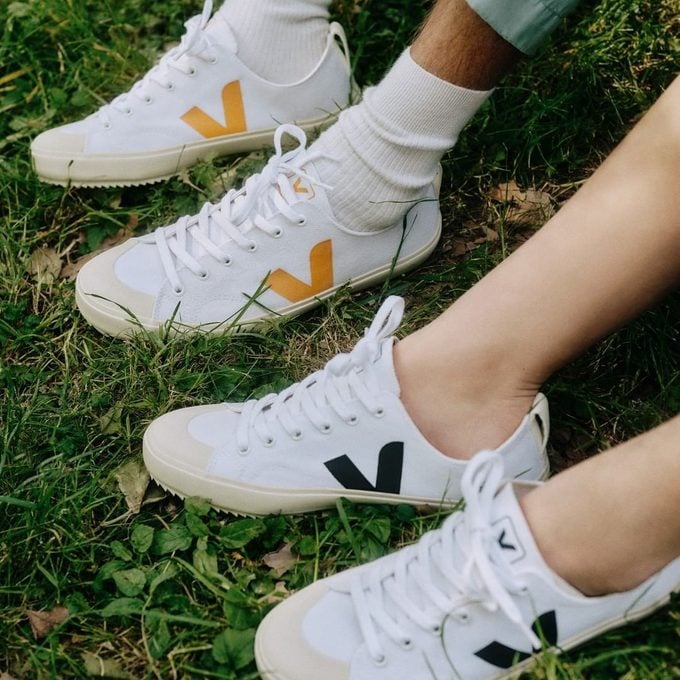
Some have said the Veja makes the most sustainable sneaker in the world. Its chic kicks use wild rubber from the Amazon, which helps fight deforestation because it gives rubber trappers in that part of the world work, preventing them from cutting down trees to raise cattle. The brand also uses ecological cotton, which enriches the soil rather than damaging it, and recycled water bottles for other parts of its shoes.
Pros:
- Designs shoes with eco-friendly materials
- Transparent about sustainability, inclusivity and more
- Supports economic and social justice
Cons:
- Shoes require some breaking in
- Sizing depends on product
Best for attainable style
Free Assembly
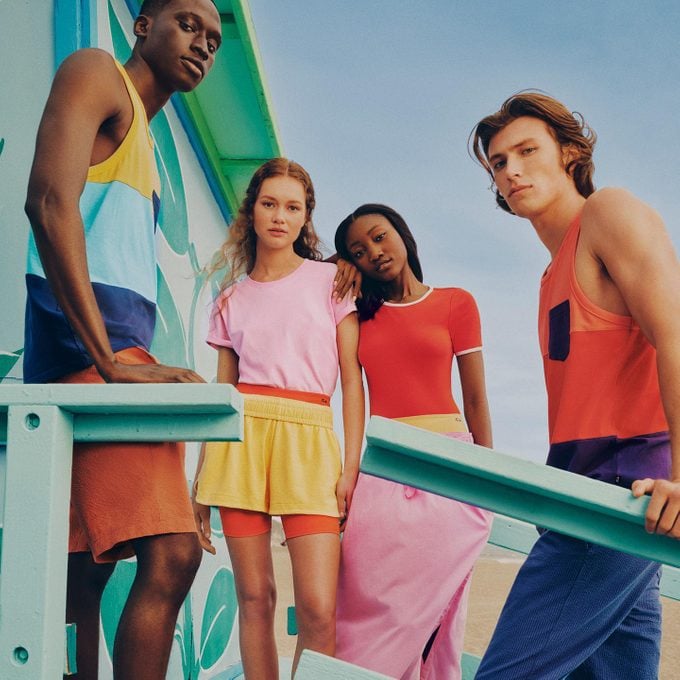
The super-affordable Free Assembly line, sold exclusively at Walmart, aims to offer eco-friendly clothing that’s as good-looking as it is affordable. The company does what it can to be sustainable, including using eco-friendly fabrics like organic cotton and producing the clothes in facilities that aim to protect the environment. Since Walmart offers a ton of non-clothing items as well, you can stock up on other eco-friendly items (think reusable straws and coffee cups).
Pros:
- Affordably priced, high quality and available all over the country
- Made in eco-friendly facilities with equally eco-friendly fabrics
- Serves women, men, girls and boys
Con:
-
Sizes aren’t always accurate
Best undergarments
The Big Favorite
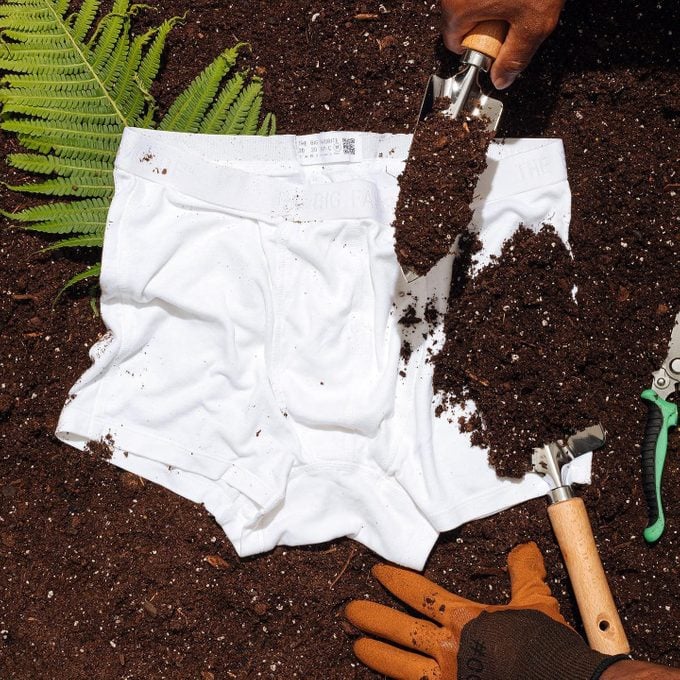
The Big Favorite is built on a circular system: It uses super-soft Pima cotton, which is easier to break down and recycle, thanks to its long-staple fibers. When you’ve worn your undies out, ship them back, and The Big Favorite will recycle them into yarn. The company’s focus is largely on undergarments, which cannot be donated or resold, thus providing a sustainable solution for a previously less-than-green clothing category. It also partners with suppliers in Peru who provide fair wages.
Pros:
- Specializes in underwear and shirts for men and women
- Simple assortment of high-quality basics
- Manufacturing is based on a circular system
Con:
-
Doesn’t sell seamless underwear or boxer shorts
Best versatile shoes
Rothy’s
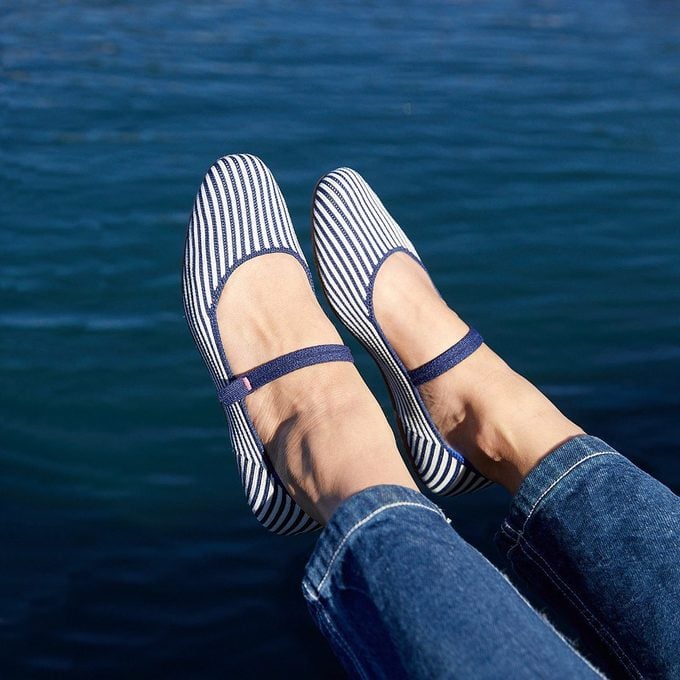
Rothy’s has earned a cult following for its machine-washable, eco-friendly shoes for men, women and children. Every pair is made from materials that are natural, recycled or renewable. The company even owns its own factory, which allows it to control the speed at which it reaches zero-waste status.
Pros:
- Versatile styles, from sneakers to dress shoes
- Made from recycled, natural or renewable materials
- Can clean shoes in the washer instead of buying new ones
Cons:
- Shoes need to air dry after being washed
- Limited selection of men’s and kids’ shoes
Best tennis whites
JGame
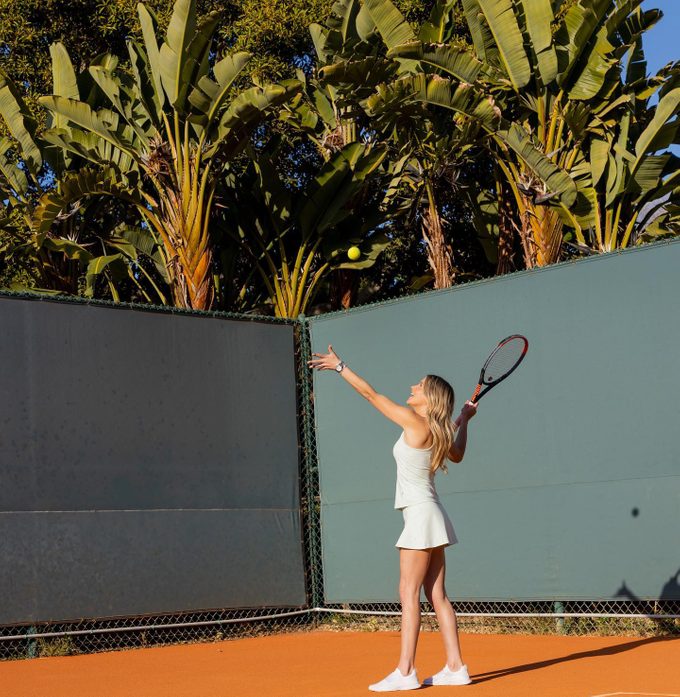
There’s a lot of tennis wear on the market, but only a small fraction of it is sustainable. Enter JGame: Between its recycled fabrics and New York City manufacturing, its products are both eco-friendly and ethically made. And while you’ll find classic tennis whites, JGame has designed collections with bright colors to discourage a culture of disposability.
Pros:
- Sustainable spin on traditional tennis whites
- Manufactured in the United States with recycled fabrics
- Bold colors help extend the clothing’s lifespan
Con:
-
Extended sizing not available
Best men’s shorts
Bamboo Ave.
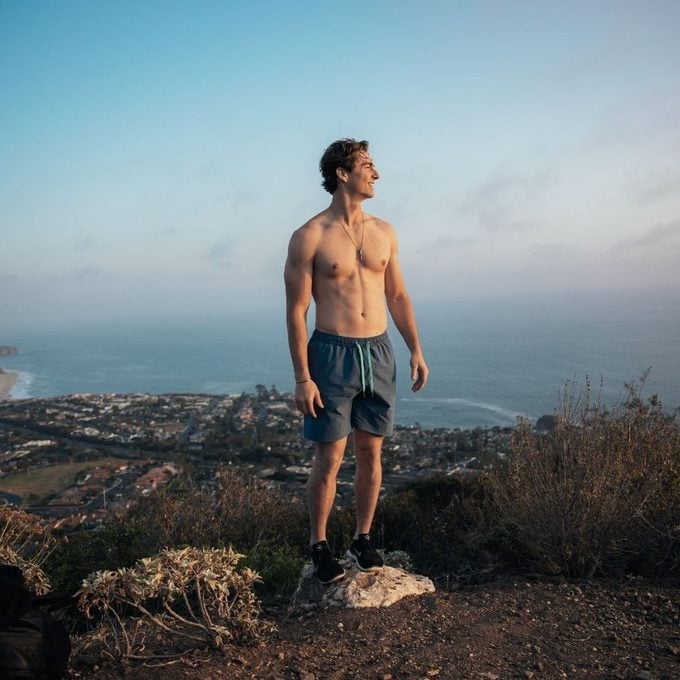
Created from 50% recycled plastic bottles and 38% upcycled coconuts, Bamboo Ave. shorts were made for errands, swimming and everything in between. The company, which sells only men’s shorts, uses recycled plastic packaging and works with ethically certified factories. Currently on Bamboo Ave.’s sustainability to-do list: building out a clothing-repair program.
Pros:
- Men’s shorts designed for a wide range of activities
- Items made out of recycled plastic bottles and upcycled coconuts
Cons:
- Small product range of exclusively shorts
- No women’s items
Best footwear for healthy feet
Naot
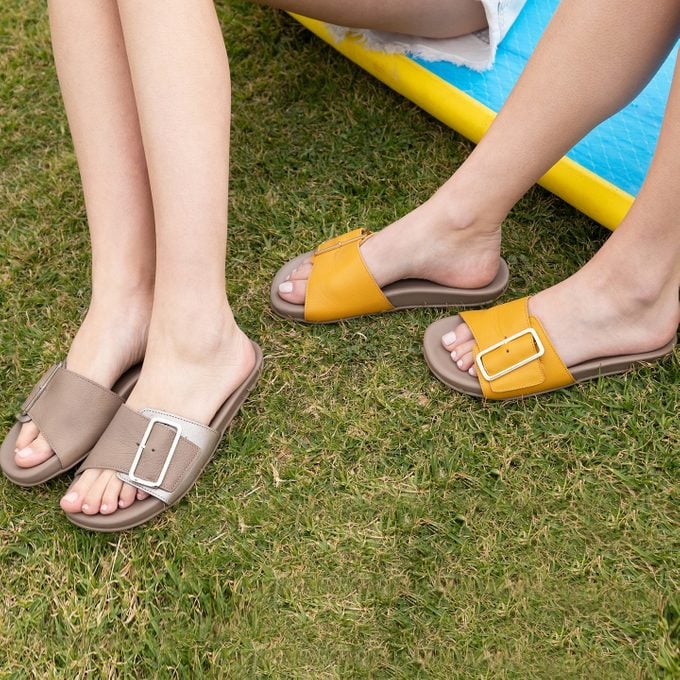
Handcrafted by a collective farming community in Israel’s Hula Valley, Naot is known for podiatrist-approved footwear that’s ethically made using sustainable methods. In partnership with Soles4Souls, Naot donates used shoes to survivors of natural disasters and micro-entrepreneurs in developing countries who are escaping poverty.
Pros:
- Podiatrist-approved shoes with removable footbeds to accommodate orthotics
- Handcrafted on a farm in Israel
- Shoeboxes made out of recycled materials
Con:
-
No children’s or formal footwear available
Best artisan-made clothing
Mirth
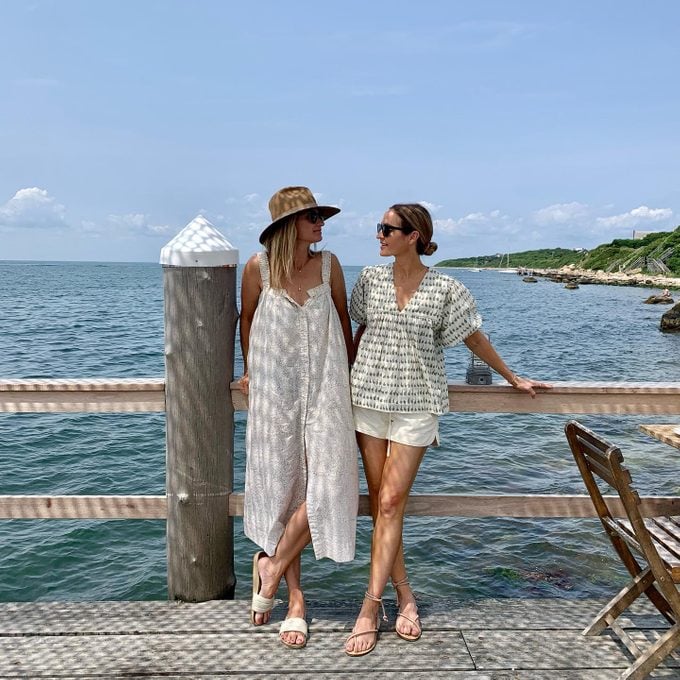
Mirth places a high priority on making a positive social and environmental impact on the world. Most of its textiles are handwoven on a loom by artisans in India who are paid fair wages, and it gives a portion of every sale back to the communities in which they work.
Pros:
- Most garments handmade in India by artisans
- Fair wages for workers
- Donates proceeds to local communities
Con:
- Minimal details about other sustainability efforts
Best curated collection
Okko
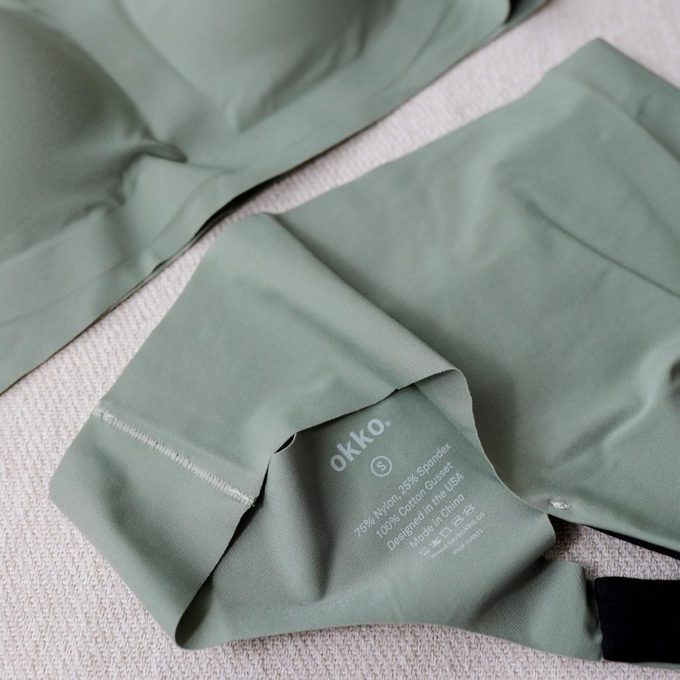
Okko‘s approach to sustainability lies in its commitment to minimalism. It offers a refined assortment: a bra, brief, thong, reusable nipple covers, two pairs of socks and two bodysuits. The goal is for customers to own timeless, comfortable basics they’ll come back to again and again instead of tons of trendy pieces that’ll end up in a landfill. One percent of each purchase is donated to a nonprofit of your choice; be sure to select the Surfrider Foundation to support the removal of plastic from beaches.
Pros:
- Streamlined assortment of staples
- Inclusive sizing
Con:
-
Minimal details about other sustainability efforts
Best recycling program
Okabashi
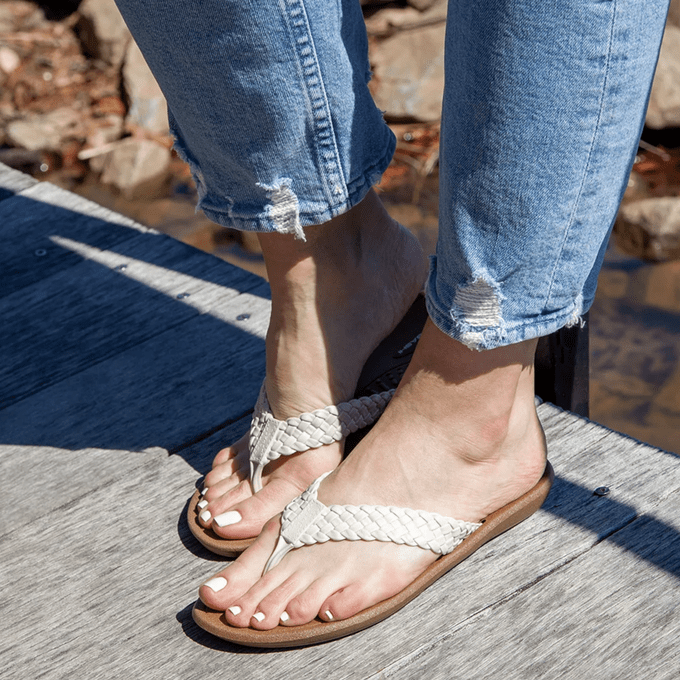
The pillars of Okabashi‘s sustainability efforts include its U.S. production and closed-loop manufacturing process. It also includes a signature recycling program, which allows you to send back worn Okabashi shoes, which the company will turn into new products—for 15% off. The shoes are designed to be comfortable and last for the long haul, and they’re even approved by the American Chiropractic Association.
Pros:
- Recycling program and closed-loop manufacturing
- U.S. production
- Combines comfort, style and quality
- Two-year manufacturer guarantee
Con:
-
Limited assortment
Best sustainable shoe brand
Toms
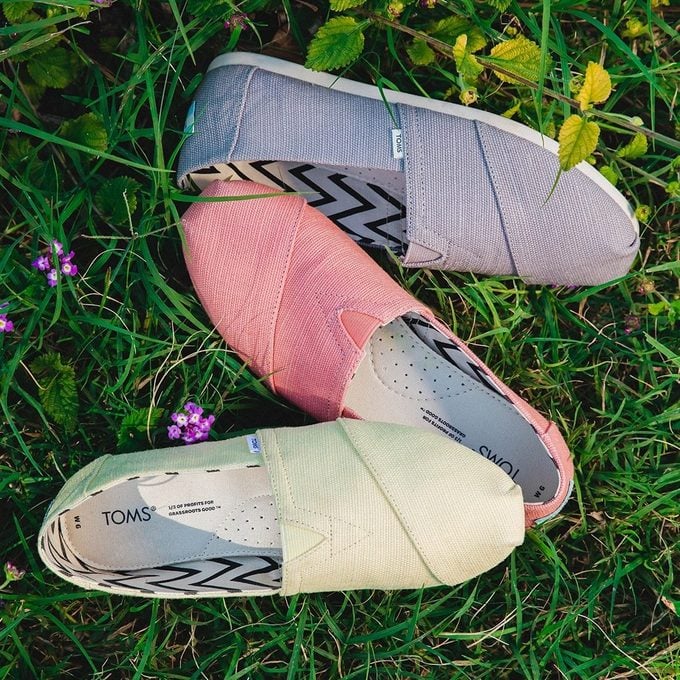
The now-defunct Toms One for One program—through which the retailer gave away a pair of shoes for each pair purchased—put the company on the map. These days, its do-good efforts have shifted to sustainability, which is where the Earthwise collection comes in. It uses a significant portion of eco-friendly materials, such as organic cotton and recycled rubber. Toms aims to expand Earthwise, source 100% sustainable cotton by 2025 and continue using green packaging. The company is transparent in its actions, releasing an annual impact report that you can view on its website. Want to do even more good for Mother Earth? Learn how to recycle just about anything.
Pros:
- New Earthwise collection uses a majority of sustainable materials
- Certified B Corp
- Large assortment of items
Con:
-
Commitment to eco-friendly materials doesn’t extend to all products
Best swimwear
Luna Cara Swim

Luna Cara Swim‘s sustainability journey is ongoing. The first steps have been manufacturing locally in Los Angeles in order to reduce emissions, and designing swimsuits with eco-friendly, sustainable and biodegradable fibers. If that’s not reason enough to pack a Luna Cara swimsuit for your next beach vacation, this may be: The fabrics are imported from Italy and Brazil for their luxe feel and high quality.
Pros:
- Swimsuits designed with eco-friendly, sustainable and biodegradable fibers
- Manufactured in Los Angeles to reduce the company’s carbon footprint
Con:
-
Limited sizing
Best cashmere
State Cashmere

Founded by a descendant of cashmere goat shepherds, State Cashmere works directly with shepherds from Inner Mongolia, maximizing profits for the shepherds and savings for the customer. The company takes animal welfare into account too: The goats are combed (which is more comfortable than being sheared) only in the spring, when they no longer need protection from the cold. Not only is the hair a renewable resource, but it’s also biodegradable.
Pros:
- Cashmere is renewable and biodegradable
- Partners directly with shepherds to provide fair wages
- Well-priced cashmere sweaters, accessories and home goods
Con:
-
Minimal details about other sustainability efforts
Best 360-degree sustainability efforts
Allbirds
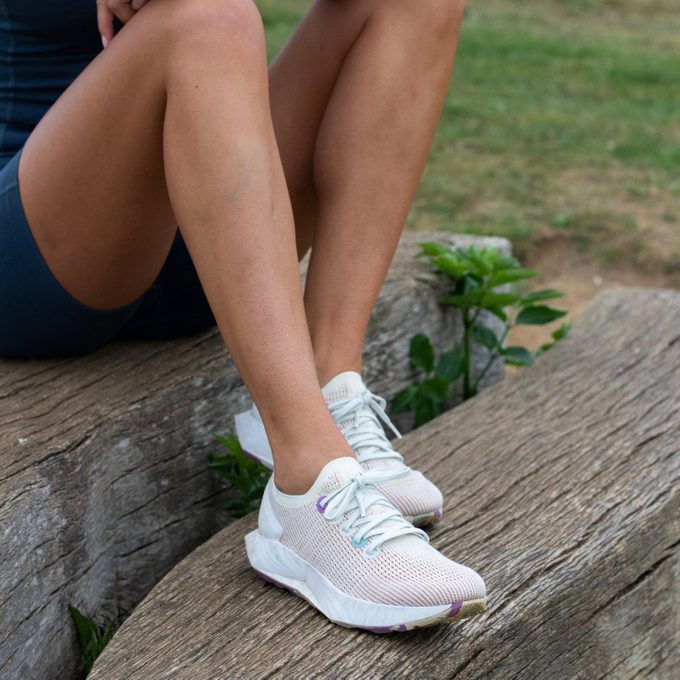
Allbirds approaches sustainability from all angles, which means using renewable materials, investing in responsible energy and prioritizing regenerative agriculture. The company’s plan is to cut its carbon footprint down to nearly zero by 2030. While it’s most known for its sneakers, Allbirds also manufacture apparel and accessories.
Pros:
- Tackles sustainability from every angle
- Executing a plan to cut its carbon footprint down to nearly zero
- Donates lightly used shoes to communities in need
- Designs simple, comfortable products
Con:
-
Not as transparent about its labor as it is about its environmental impact
Best buy one, give one program
Warby Parker
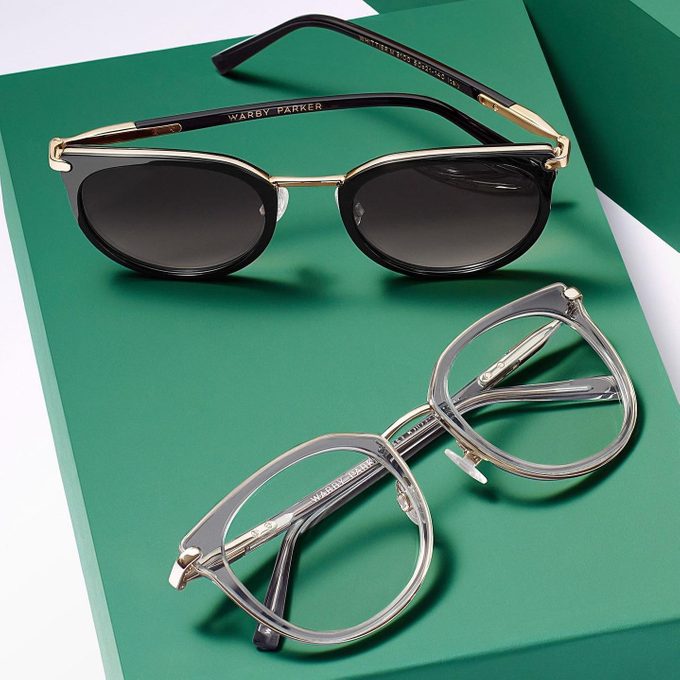
Since day one, Warby Parker has been dedicated to carbon neutrality, carefully measuring its carbon footprint and offsetting its emissions with third-party agencies. But the do-good actions don’t stop there. The eyeglass company’s Buy a Pair, Give a Pair program distributes free or affordable eye exams and pairs of glasses to those in need for every pair sold. Warby Parker is also transparent about the details of its required Vendor Code of Conduct and Social Compliance Program. Into funkier specs? Buy instead from the man upcycling old denim into cool glasses.
Pros:
- Buy a Pair, Give a Pair program provides free or affordable eye exams and glasses to those in need
- Remains carbon neutral by measuring and offsetting emissions
- Offers home try-on and in-store eye exams to make getting glasses easy
Con:
- Some say the lenses are prone to scratching
Best jewelry
Fewer Finer
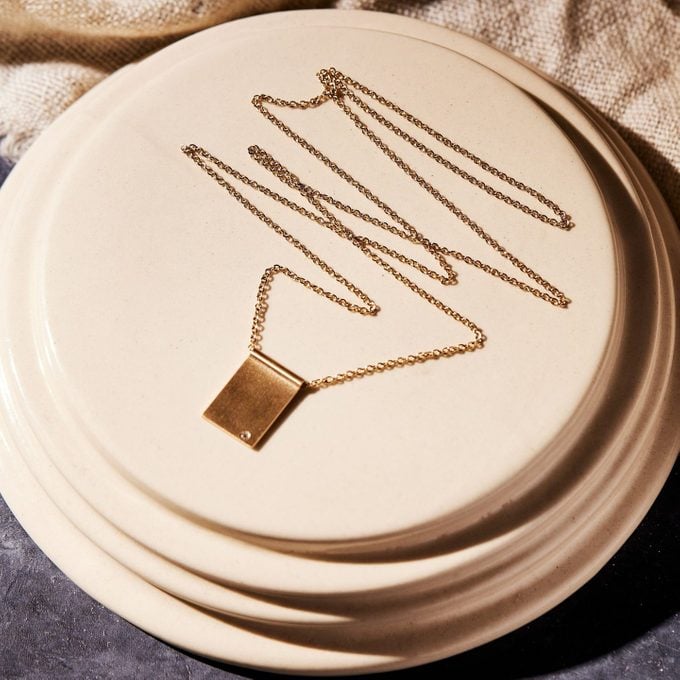
Fewer Finer’s commitment to sustainability begins with its brand purpose: to encourage people to invest in their jewelry so they can buy fewer items and minimize waste. Every piece is handmade and finished in New York City, and the company also offers custom jewelry and a curated collection of vintage jewelry. Fewer Finer only engages in ethical and environmental production standards, fair labor practices and (for the diamonds specifically) United Nations resolutions and Kimberly Process regulations.
Pros:
- Designs timeless jewelry that encourages customers to buy less
- Supports ethical and environmental sourcing and production as well as fair labor
- Offers custom and vintage jewelry in addition to branded pieces
Con:
-
Due to the quality, this jewelry is on the pricier side
Best women’s workwear
M.M. LaFleur

Responsibly producing fabrics, reselling, recycling textiles—M.M. LaFleur is doing it all. Since the brand’s inception, it has supplied well-made pieces with a classic style that can be worn for years to come. It has also introduced styling services to minimize returns and exchanges, care tips via email to help make damaged items look brand new again, and much more. M.M. LaFleur ensures nothing is wasted by recycling bits of material that get discarded during production, a step that has saved thousands of pounds of fabric from the landfill.
Pros:
- Creates work-appropriate pieces designed to last, thanks to both the high quality and timelessness
- Adds Thredup bags to every order and hosts its own site, Second Act, to encourage reselling when customers are done with an item
- Encourages re-wearing through styling services and personalized care tips
Con:
-
Only about 50% of apparel is machine washable
Why is sustainable fashion important?
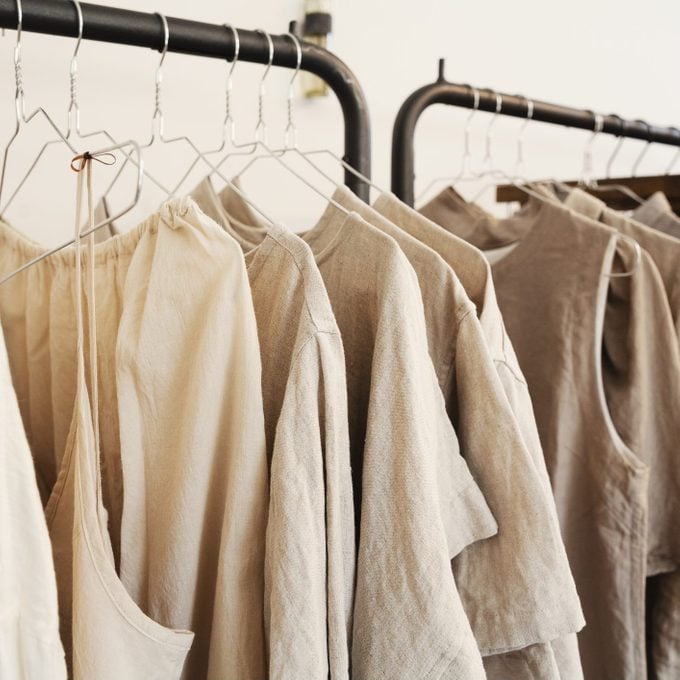
Eco-friendly fashion is an important aspect of fighting climate change. We’re going to buy clothing no matter what, so why not support brands that keep the earth’s future in mind? But shopping for eco-friendly clothing is just one piece of the earth-friendly puzzle. Learn more about the sustainable changes you can make in your life by reading up on how to compost, reduce food waste and travel sustainably.
Additional reporting by Bethany Heitman.
Sources:
- Anika Kozlowski, PhD, assistant professor of fashion, design and sustainability at Ryerson University
- One Green Planet: “What Is the Most Animal and Eco-Friendly Material for Clothing?”
- One Earth: “Making Fashion Sustainable: Waste and Collective Responsibility”
- Changing Markets Foundation: “Fossil Fashion”
- The Good Trade: “Sustainability Certifications: What Do They Actually Mean?”

